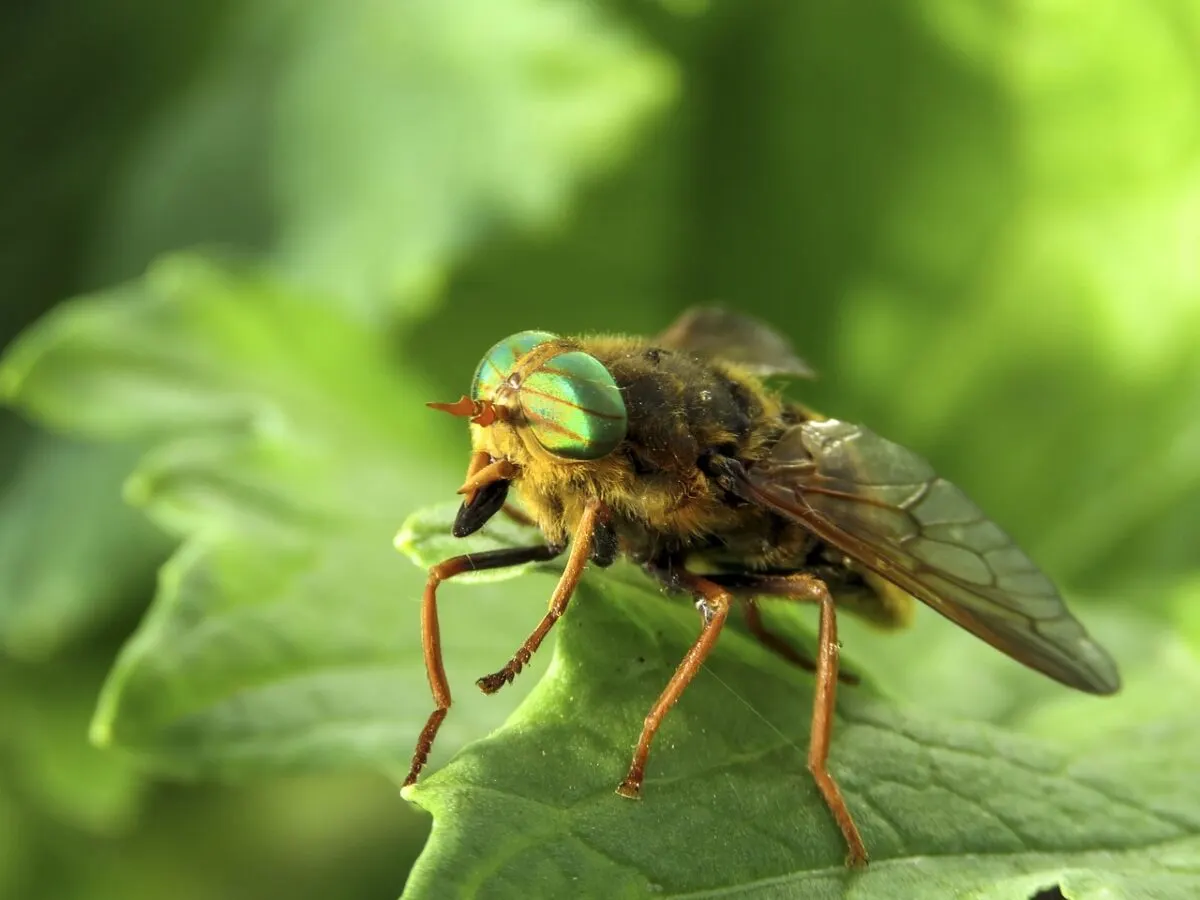Nothing ruins a beautiful summer’s day like a horsefly bite – let’s take a look at how to treat them.

One of the most dreaded summertime nuisances is the horse fly bite. These painful bites can not only be annoying but can also have profound health implications if left untreated. If you’re like many folks dealing with a horsefly encounter this summer, don’t worry – we’ve got you covered!
We’ll discuss what to do in case you get bitten by one of these pesky little critters and provide essential tips on recognizing and preventing future encounters from happening.
What Is a Horsefly Bite and What Causes It
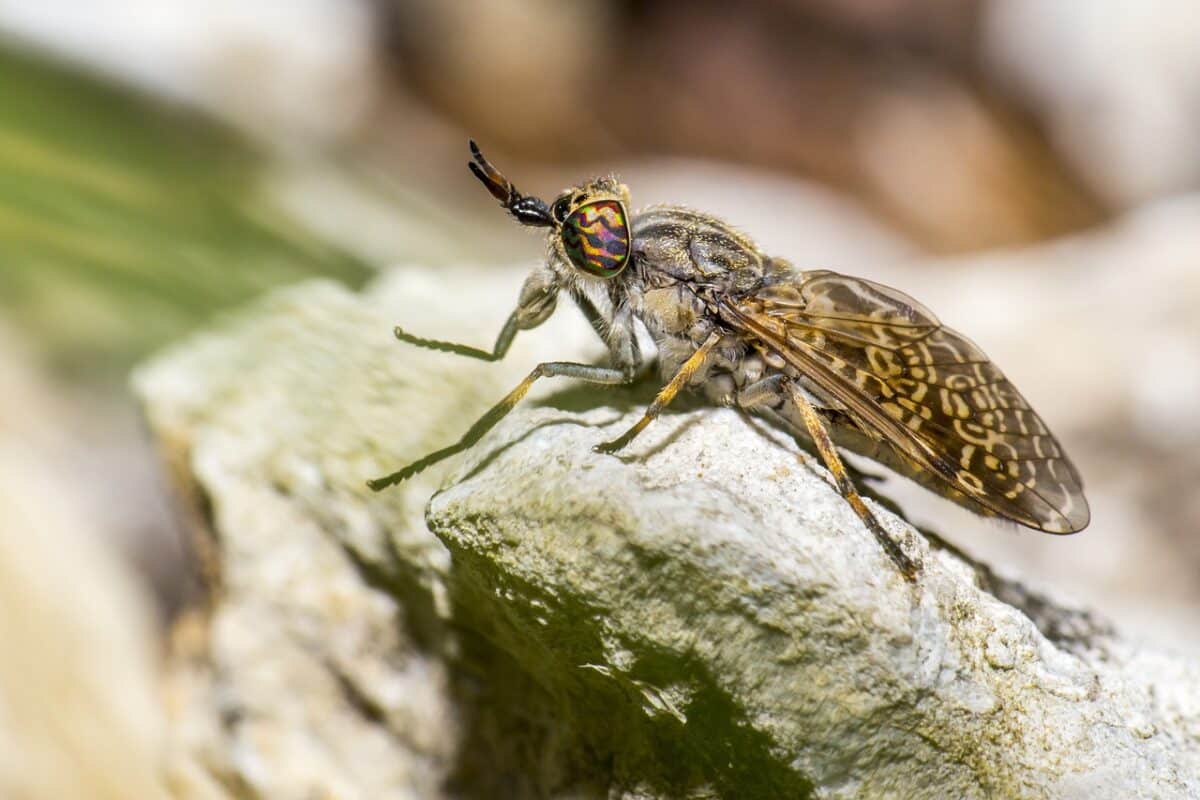
A horsefly bite is an annoying and painful bite from a biting fly. Horseflies are large, blood-sucking insects, usually between ¼ to 1 inch long.
They have long antennae and get nutrition from the blood of animals, including humans. Horsefly bites can be very itchy and painful and may become swollen or infected if not treated properly.
The cause of horsefly bites is simply being in the vicinity of a horsefly when they decide to feed. Horseflies are attracted to movement, warmth, and sweet scents such as perfumes and lotions. In addition, they can also detect carbon dioxide, which indicates to them when there is a potential food source nearby.
Horseflies are active during the day but most often bite early in the morning or late afternoon.
As a result, the best way to avoid being bitten by a horsefly is to limit outdoor activities during these times. Otherwise, you can wear protective clothing that covers your skin, such as long-sleeved shirts or pants tucked into socks.
In addition, insect repellents with DEET or picaridin can help reduce the chances of being bitten by a horsefly. These substances will make it difficult for them to land on your skin for a meal of fresh blood.
Symptoms of a Horsefly Bite
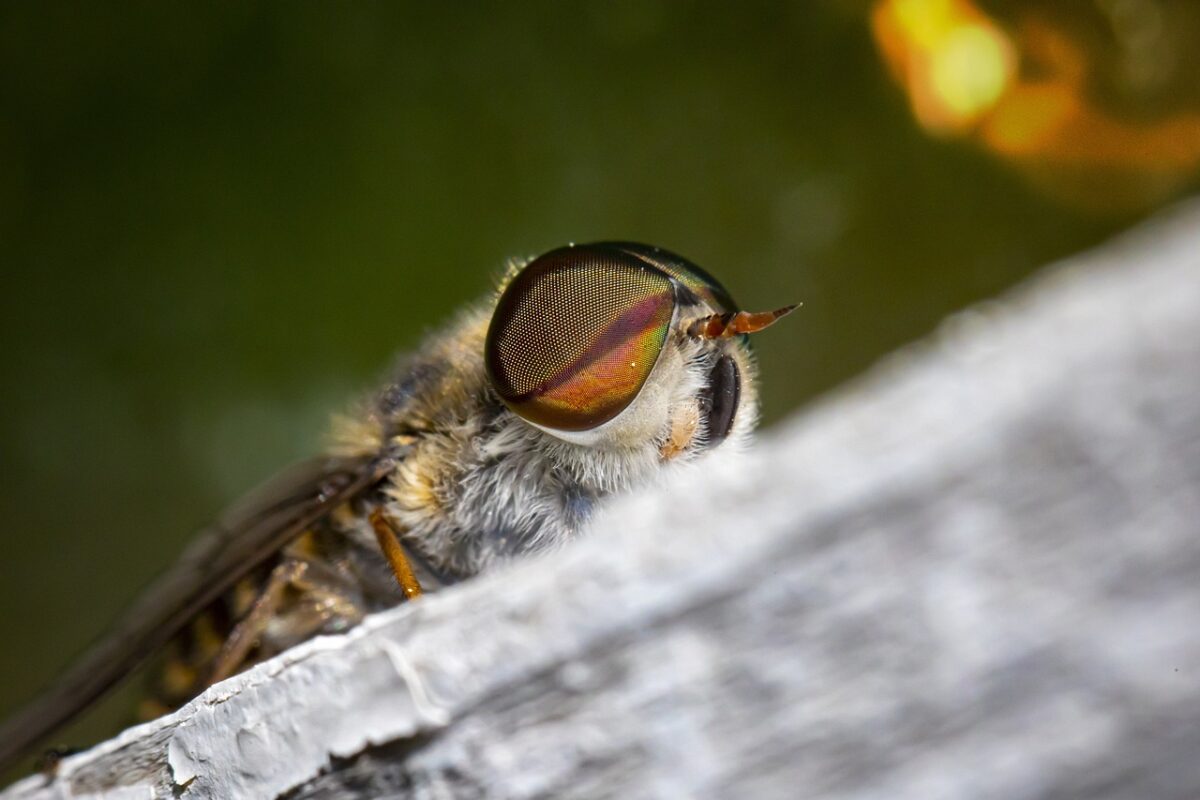
A horsefly bite can cause several unpleasant symptoms. The most common symptom is a sharp and sudden pain at the site of the bite, lasting several minutes. This is due to the fly’s serrated mouthparts. They inject saliva and anticoagulants into the skin to help break it down for feeding.
The area may become swollen, red, and itchy as an allergic reaction occurs. Some people also experience nausea or dizziness from the venom contained in the fly’s saliva. In extreme cases, horses or humans bitten may also suffer from fever, headache, congestion, or other severe reactions.
It is important to note that while horseflies are not known to transmit diseases in their bites. Nonetheless, they can still be painful and uncomfortable. Proper treatment should be sought if symptoms persist or worsen.
How to Treat a Horsefly Bite
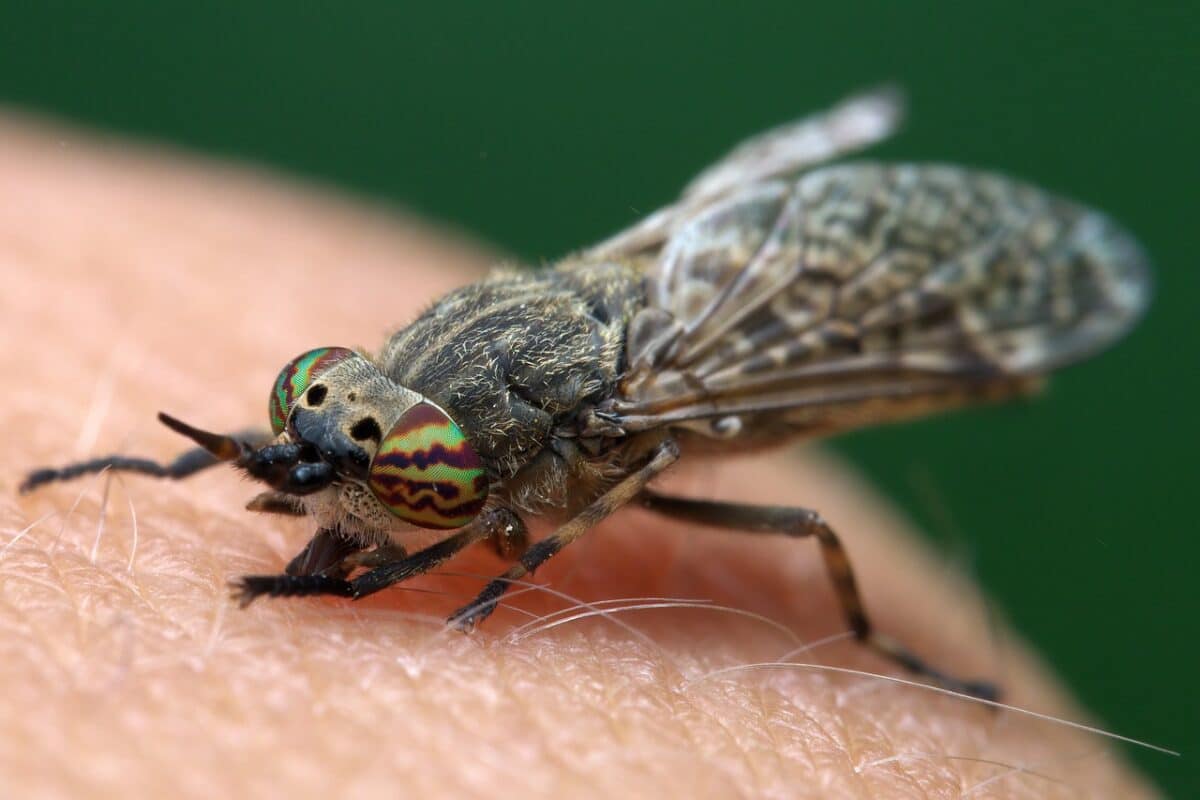
Mentioned below are some helpful tips on how to treat a horsefly bite:
- Rinse the area with warm water. This will help to reduce any infection or swelling that could occur.
- Apply an antiseptic cream or ointment to the bite, such as calamine lotion or hydrocortisone cream. These products help soothe the pain and itching associated with a bite and can help prevent infection from developing.
- Take an over-the-counter antihistamine such as Claritin if you experience extreme swelling, hives, or other allergic reactions to the bite.
- For more severe cases of horsefly bites, consult a physician for prescription medication such as antibiotics if an infection develops. Steroid injections may be prescribed if there is excessive swelling or inflammation around the wound site.
- To reduce discomfort from the bite, apply cold compresses soaked in water or vinegar directly onto the wound site several times daily until symptoms subside; this will help reduce inflammation and discomfort caused by a horsefly bite.
- Lastly, keep the area clean by regularly changing bandages to avoid further skin irritation from dirt and bacteria buildup at the wound site.
Home Remedies to Relieve the Itch Caused by a Horsefly Bite
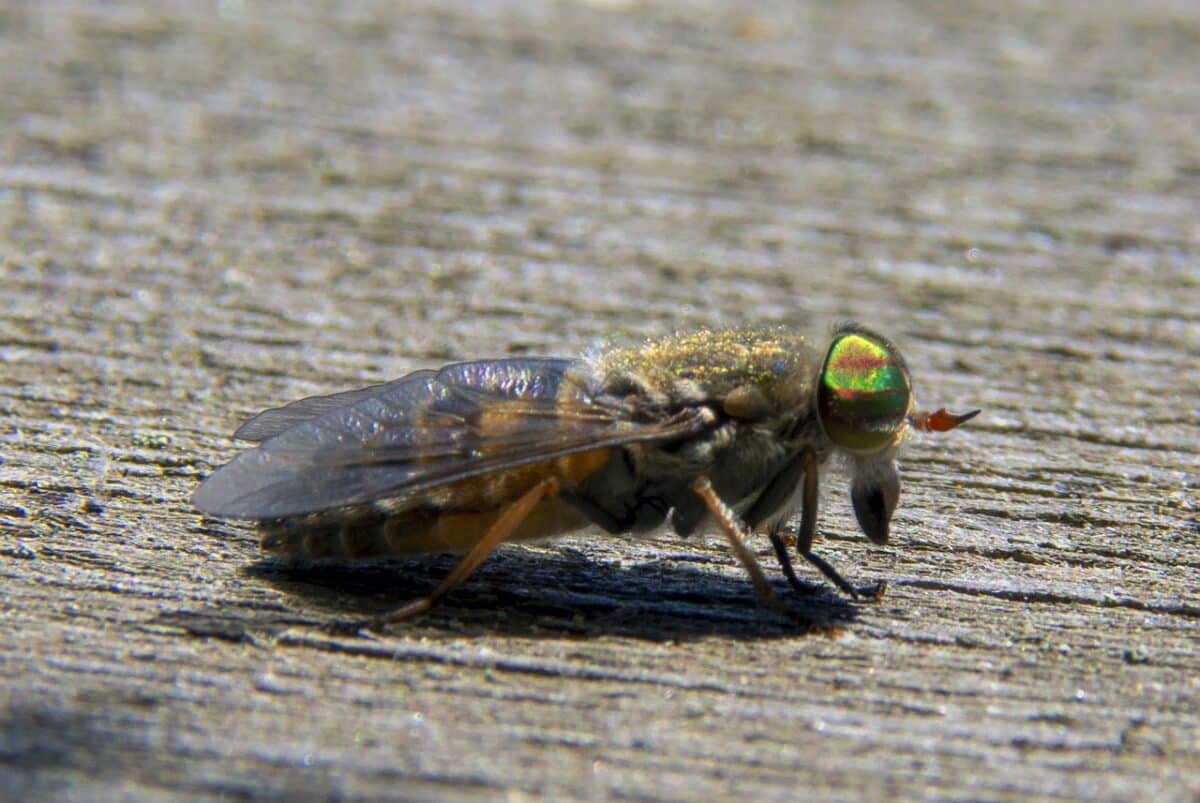
The most popular treatment is to apply an ice pack to the bitten area. Ice helps reduce inflammation and itching while cooling the skin temporarily numbs the nerve endings responsible for transmitting pain signals.
Another home remedy is to apply baking soda and water. Baking soda neutralizes any acid present in the venom and helps soothe irritation. Additionally, it has antibacterial properties that can help fight any secondary bacterial infections that may result from scratching at the wound.
An apple cider vinegar soak or a diluted hydrogen peroxide solution can also be a home remedy for relieving the itch caused by a horsefly bite. Apple cider vinegar contains acetic acid, which helps reduce itching and infection, while hydrogen peroxide is an antiseptic and can help clean out any remaining toxins in the wound.
Finally, calamine lotion can also be applied directly to the affected area. It contains zinc oxide, which helps dry out blisters and reduce the itching sensation. Additionally, calamine lotion also contains menthol, which cools down inflamed areas while providing relief from discomfort.
How to Prevent Getting Bitten by Horseflies
There are a few steps you can take to reduce your risk of being bitten by a Horsefly:
- Wear clothing that covers as much of your skin as possible. This makes it challenging for the flies to spot and bite you.
- Use insect repellent containing DEET or picaridin on exposed skin whenever possible. These products are proven effective at deterring many biting insects, including horseflies.
- Avoid wearing heavily scented lotions or perfumes, which can attract horseflies and other bugs.
- If you spend time outdoors where horseflies are present, stay in well-lit areas instead of dark places.
Horseflies are more attracted to darker areas where they can hide and find warmth more quickly.
When Should You See a Doctor If Horse Flies Have Bitten You?
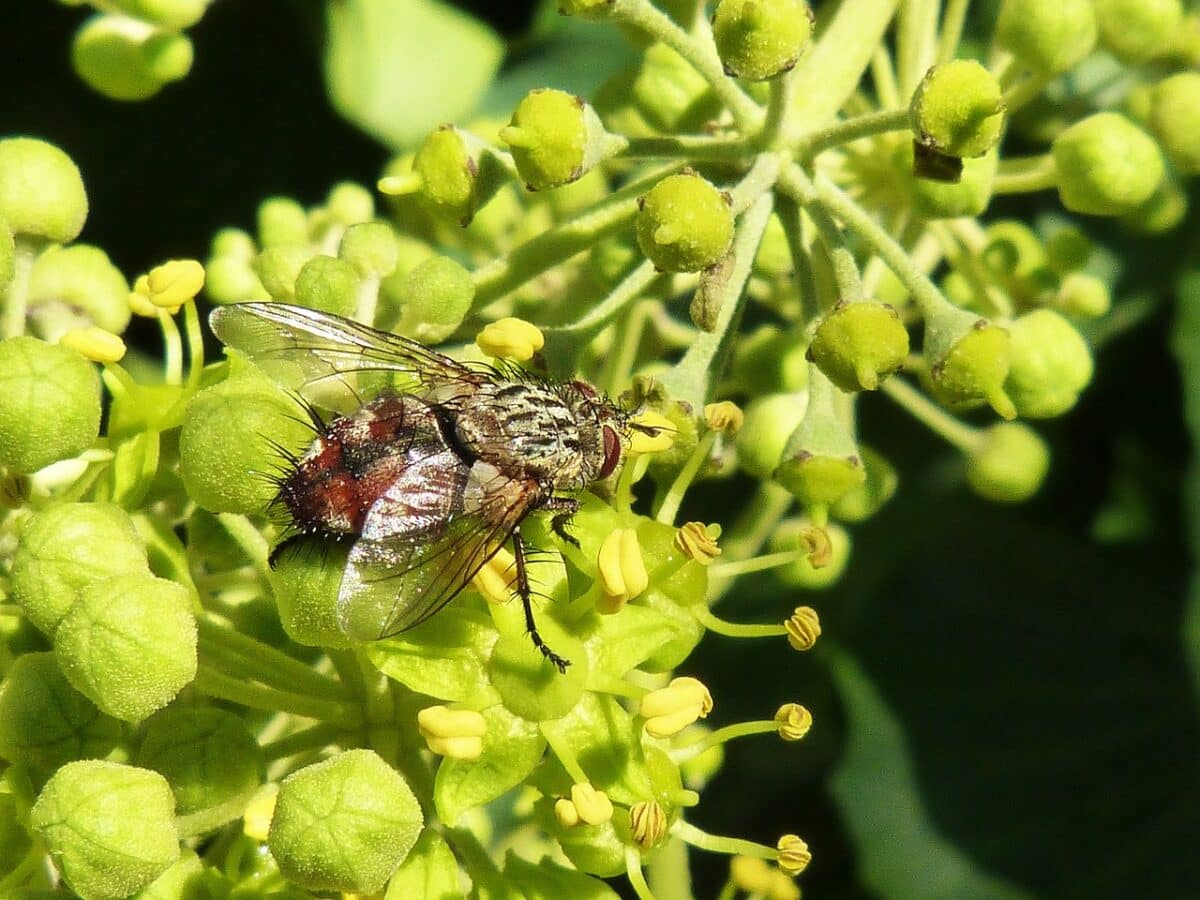
Horsefly bites can cause various symptoms, including redness and swelling at the bite site, itching, burning sensation, and even an allergic reaction.
If you experience anything more than minor irritation or itching, such as fever or chills, nausea, vomiting, or difficulty breathing, you must see a doctor immediately. In addition to physical symptoms, you should also be alert for any signs of infection, such as drainage from the wound or increased redness and pain around the area that the horsefly bit.
Depending on your condition, your doctor may administer antibiotics or antihistamines to help reduce inflammation and treat any infection. If there are concerns about severe allergy or anaphylaxis, the doctor may recommend further testing or treatment, including an epinephrine injection.
Key Points
| Horseflies are large, blood-sucking insects, usually between ¼ to 1 inch long. |
| Horsefly bites can be very itchy and painful and may become swollen or infected if not treated properly. |
| The most common symptom is a sharp and sudden pain at the site of the bite, which can last several minutes. |
| If you experience anything more than minor irritation or itching, such as fever or chills, nausea, vomiting, or difficulty breathing, you must see a doctor immediately. |
| You can prevent horsefly bites through avoiding dark clothing, steering clear of still water, and areas with damp vegetation during outdoor activities when these flies tend to be most active. |
Bottomline
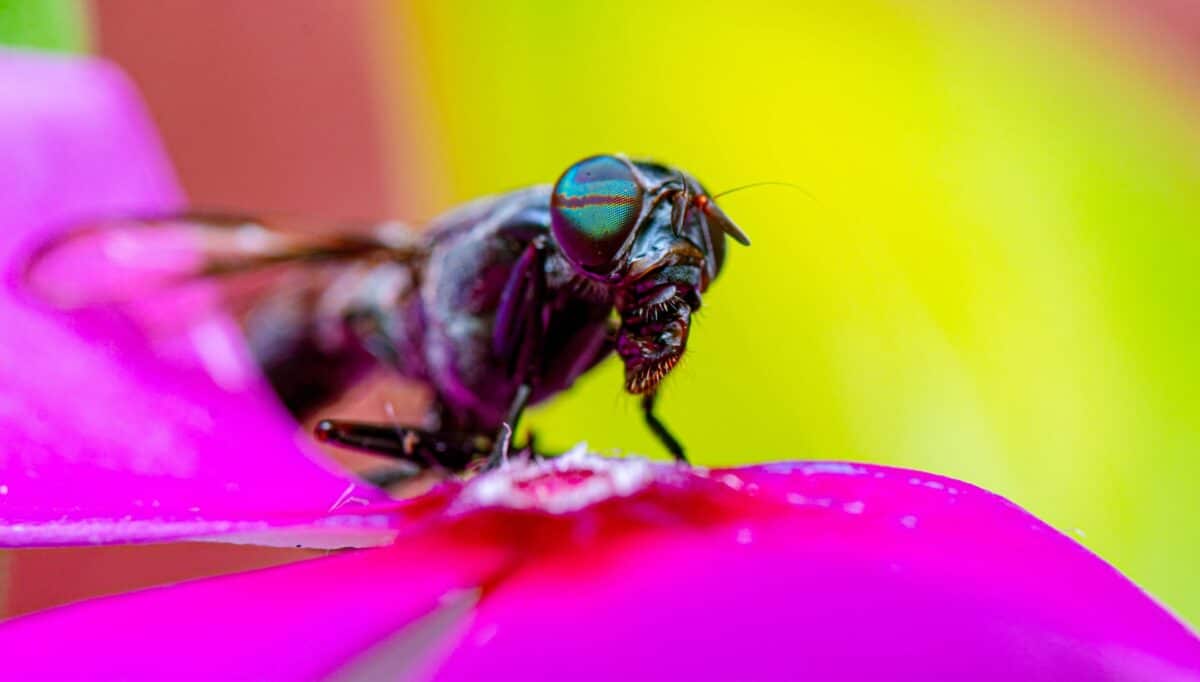
In conclusion, a horsefly bite is an unpleasant experience and can cause very painful and itchy skin. If you’re bitten by one, it’s best to start treating the area as soon as possible to reduce swelling or itchiness.
Depending on your symptoms and the severity of the bite, simple home remedies such as cold compresses and hydrocortisone may be enough to help alleviate the irritation. If that doesn’t work for you, it’s always a good idea to consult a physician for other advice or medication.
Additionally, there are ways that you can prevent horsefly bites through avoiding dark clothing, steering clear of still water, and areas with damp vegetation during outdoor activities when these flies tend to be most active.
Don’t forget that if your symptoms worsen or show signs of infection, you must see a doctor immediately. So if you want to prevent those pesky horseflies from biting in the first place, take the necessary precautions sooner rather than later!
Thank you for reading this article! If you enjoyed this read you’d also like our post on No-See-Ums, one of the few insects more annoying than the horsefly!
Join our Forum for free today!


